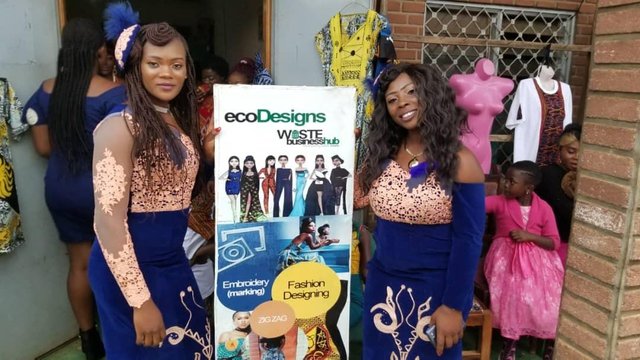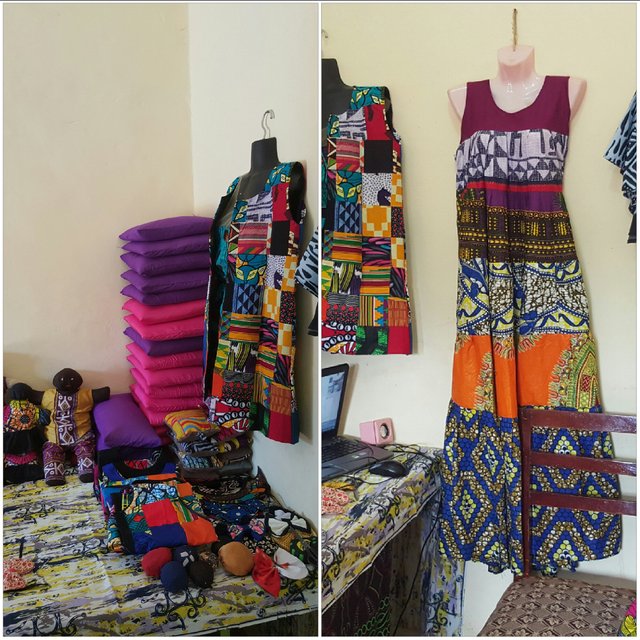Textile Recycling (ecoDesigns)
ecoDesigns is a five (05) years textile recycling and fashion designing hub that is training women and girls for FREE in textile recycling and fashion designing in a bid to reduce female unemployment, reduce inequalities and poverty, promote female entrepreneurship, improve the health and wellbeing of orphans, prisoners and poor people via the donation of free clothes and shoes, as well as reduce the number of clothes that get burned or thrown in the landfill. It’s a branch of The Greens’ Waste Business Hub, a startup incubator that is training young and underprivileged youths to exploit the business opportunities available in the domain of waste; hence nurturing a generation of Waste Business Entrepreneurs (Wastepreneurs).
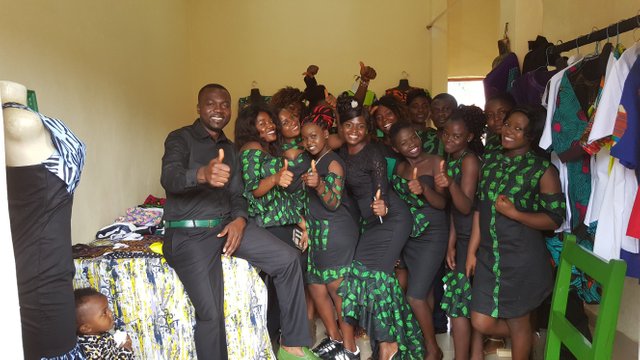
Prior to starting ecoDesigns, we conducted research with the goal being to find out the quantity of textile waste produced by the fashion industry in Bamenda, the total number of tailors and fashion designers as well as know whether the people were aware of the environmental impact of the textile and fashion industry.
Some of our research findings include;
The amount of textile waste generated in Bamenda is rapidly increasing
- Many people do not know the environmental impact of textile waste
- The tailoring industry in Bamenda is dying i.e. Professionalism is dying, prices are falling, and business is dying and all these are due to the huge influx of low-quality non-durable, and cheap materials imported from Asia. What people popularly call "Chinese materials". Any man anywhere is sewing anything and really doesn't care about the quality of the product or price. This has greatly contributed to textile waste pollution in Bamenda.
- There are more “General Tailors” than “Specialist or Specialized Tailors”.
- Women's garments produce more textile waste than men's garments
- Women sew and have more garments than men
- There are more than 800 Tailors in Bamenda
- Each tailor generates an average of 2 – 5kg of textile waste every week and even more during festive periods. We realized from this research that the tailoring/fashion industry in Bamenda generates about 1600kg to 4000kg of textile waste every week.
- The Bamenda main market and Commercial Avenue have the highest amount of tailors in the city hence the heart of textile waste produced in the city
- More than 90% of tailors/fashion designers burn or throw their textile waste in landfill and many of them were unaware of the environmental impact of textile waste and the textile industry as a whole.
- Not up to 10% of the Tailors and Fashion Designers recycle. Even the less than 10% who recycle do so at a very small scale
These are some of the scary facts that inspired us to start @ecodesigns.
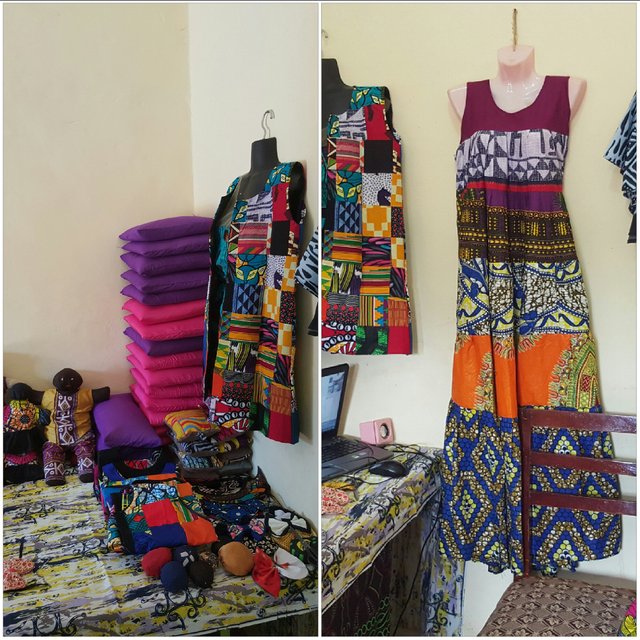 What we do at ecoDesigns
What we do at ecoDesigns
Did you know if you recycle 5kg of textile waste you are preventing 13 – 18kg of CO2 gases from polluting the atmosphere, saving 14000 gallons of water, and reducing the amount of insecticides released to grow material for new clothes?
We do what we do at ecodesigns because we want to change the situation.
At ecodesigns, we're innovatively upcycling textile waste into;
- EcoSanitary Pads (Reusable pads) to improve menstrual hygiene and sanitation
- EcoPillows for Kids
- eecoDesigned Garments
- Dolls
- Dodge Balls
- Chalkboard Dusters
- Mattresses
- Scarecrows, etc
- The 1000 COVID-19 Face Masks Project
ecoDesigns has graduated 9 trainees who now own their own businesses, currently has 13 trainees and 03 Training Directors and has upcycled over 5000 kg of textile waste. The hub has donated over 3000 clothes and shoes to the needy.
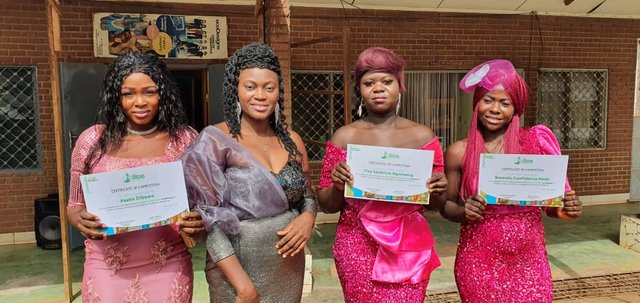
2021 Graduates of EcoDesigns with their Training Director
